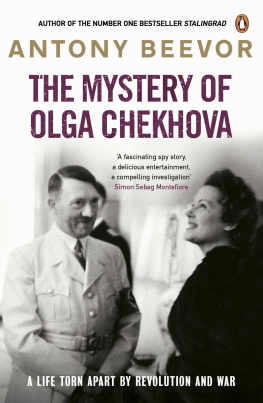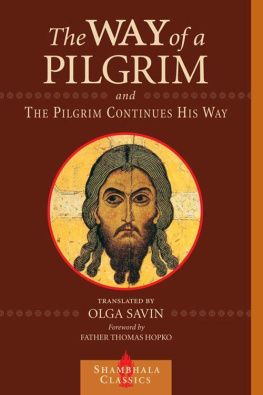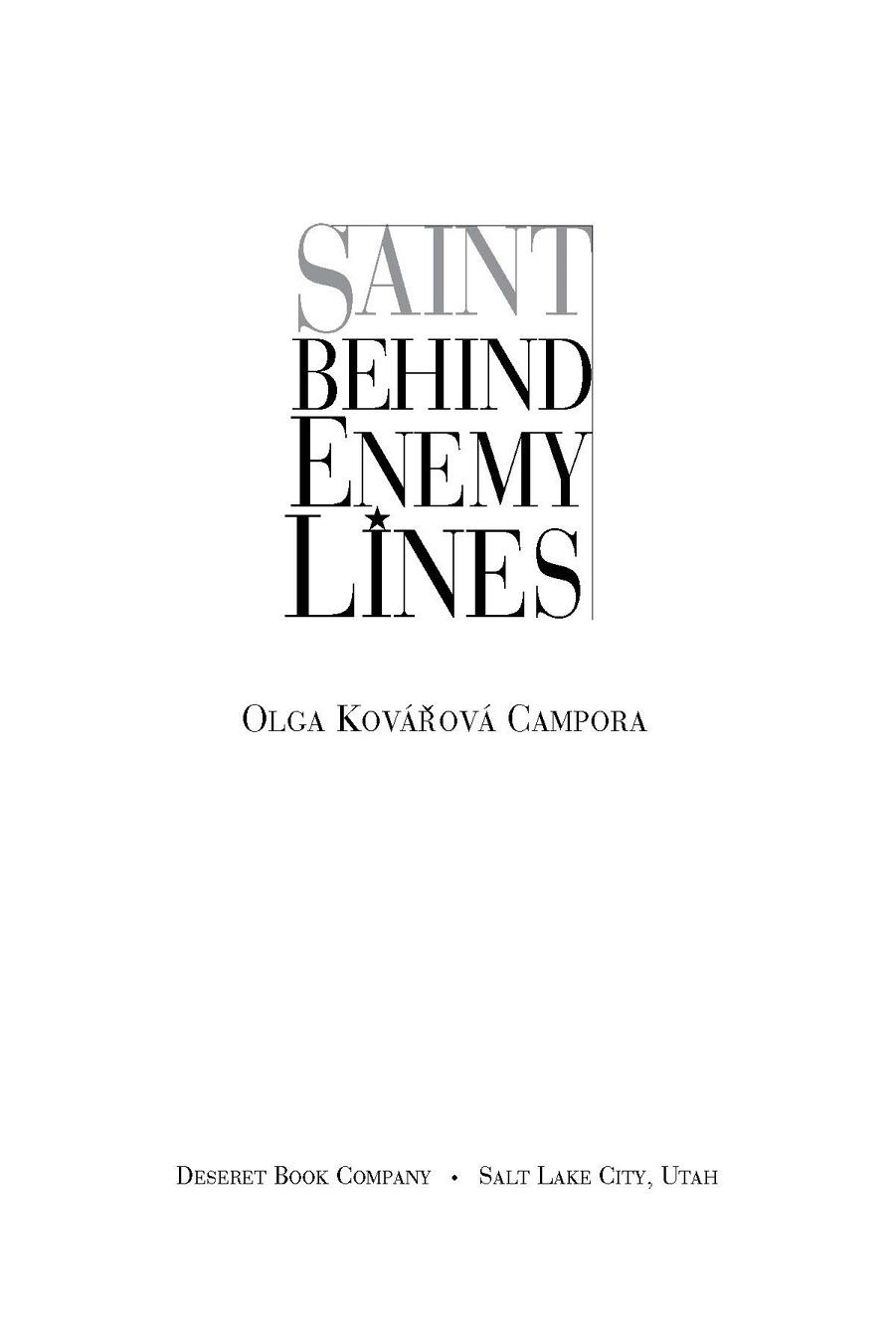To my mom and dad,
my heroes
1997 Olga Kovov Campora
All rights reserved. No part of this book may be reproduced in any form or by any means without permission in writing from the publisher, Deseret Book Company, P.O. Box 30178, Salt Lake City, Utah 84130. This work is not an official publication of The Church of Jesus Christ of Latter-day Saints. The views expressed herein are the responsibility of the author and do not necessarily represent the position of the Church or of Deseret Book Company.
Deseret Book is a registered trademark of Deseret Book Company.
Library of Congress Cataloging-in-Publication Data
Campora, Olga Kovov 1960
Saint behind enemy lines / by Olga Kovov Campora.
p. cm.
Includes index.
ISBN-10 1-57345-227-0 (hb)
1. Campora, Olga Kovov, 1960 . 2. Mormon convertsCzech
RepublicBiography. 3. MormonsCzech RepublicBiography.
4. MormonsUnited StatesBiography. I. Title.
BX8695.C22A3 1997
289.3'092dc21
[b]97-12495
CIP
Printed in the United States of America
10987654321
Acknowledgments
I express my thanks to all the courageous Czech Saints and to my many wonderful friends who helped me to grow and blossom in my understanding of God during the time of Communist darkness in Czechoslovakia. I especially would like to thank Otakar Vojkvka, whose unique missionary approach revealed many hidden talents in myself, particularly how to work with atheistic people and those with cynical, judgmental attitudes toward God.
My deepest love and appreciation go to my wonderful parents, who always have been there for me, have believed in me, and have given me confidence. Without them I wouldnt have tried so persistently in my youth to be a good person as I searched for joyful meaning in my life.
As always, I thank my husband, Randy, who cheerfully devoted many nights to going over my manuscript and making necessary language corrections.
Appreciation goes to Sheri Dew, who challenged me to start writing this book while I was still questioning the quality of my English, and to my wonderful editor, Linda Gundry, for her uplifting, positive spirit, professional navigation, and patience in bringing the manuscript to publication.
Most of all, I am grateful to my Heavenly Father for the opportunity to be born in a country with no freedom, for he knew that the journey would bring the sweetest fruit of my life, the gospel of Jesus Christ.
CHAPTER
No History, No Heroes
Where are you from? I am often asked here in the United States. Sometimes I play a geographic game by asking a question in return: Whats your best guess? Peoples guesses vary a great dealSweden, Germany, Russia, Canada, or England. One time someone even guessed South Africa.
Well, I am from a country which doesnt exist anymore, I reply. When I then explain that I was born in Czechoslovakia, people usually comment, Oh, you are having a war.
No, thats Yugoslavia, I explain. I am from Czechoslovakia. How close these words and countries are! Yet during the Velvet Revolution, as the Czech revolution of fall 1989 is called, the beast of Communism was broken in my homelandwithout war or bloodshedand my country became two separate republics. Yugoslavia, however, was torn by a war that symbolizes the sore, bitter process of the gradual death of the Communist dragon in Eastern Europe. Recently I have realized what tremendous changes have occurred in the part of Europe where Communist domination, like a heavy question mark of nothingness, hung over the people for dozens of years.
When I was a small child attending elementary school, I had a strange feeling while learning about Czech history. I remarked to my parents many times, I am living in a strange time. There has to be someone living now who is a great composer, writer, or hero. Why dont we know anything about them? There is no great history taking place now, and we dont have any heroes. Can it be possible? They always looked sadly at me without any reply.
Indeed, I was born in a time when no news in the Czech newspapers could produce any real excitement for life. Life was filled with twisted lies from the top to the bottom, as was the news in any newspaper. And worse, these lies went beyond the walls of government and police buildings, with Communist propaganda striding boldly into the streets in the form of big, red-lettered signs and slogans: We Will Command the Sun and the Rain! or With the One and Only Soviet Union for Eternity and Never Any Different. The beast of Communism strolled into movies, theaters, and shops and walked slowly but surely into the doors of peoples homes. Czechs became not only disappointed and tired but gradually like walking plaster masksemotionally exhausted and having almost no expression on their faces. That was the permitted public defensepassive, nonaggressive, therefore acceptable. The Czech Communists were proud of the fear they were able to so effectively produce. Fear was an unforgettable symbol of their power.
I was born in Uhersk Hradit, a small town of about 35,000 inhabitants in Southeastern Moravia, the Czech Republic, just an hour-and-a-half drive from Vienna. This area is also called Moravsk Slovcko because of its close proximity to Slovakia, but the name also carries with it a unique folkloric heritage. People from Moravsk Slovcko love music and dance, work endlessly in their vineyards and orchards, and are generally considered by foreigners to be the most hospitable of the Czech people.
There is always a reason to celebrate could easily be the principal maxim of the people there. Often you would hear the sound of the cembalo (a large-hammered dulcimer) so native to the region, with violins, string bass, and a clarinet. You would wonder how quickly a dinner table could be made ready for a miniature feast, just for you. The famous Czech kole of apricot, prune, or poppy seed would never be missing as a dessert. Moravt Slovci are truly generous, open-hearted, giving, and jovial.
This is the place of my ancestors. I am grateful to our Heavenly Father that I was born in such a distinguished soil with such a deep, rich cultural heritage, more so since it was a shimmering heavenly gift in sharp contrast to the dark days of socialism in which I grew up. There may have been many contrary things around us and Communist elements of life that were distasteful to us, but among my people, our great heritage and the strength of our ancestral roots could serve as anchors within us. My anchor was and is the Slovck music, which I love deeply. There is always sunshine in my soul whenever I listen to the sweet sound of the clarinet, violins, and bass, or the sonorous clang of the cembalo , my ears catching the unique rhythm and melody.
Co ech, to muzikant (Every Czech is a musician), so the saying goes. I had a passion for musical instruments when I was small, and my first love was the old Even accordion my dad bought for me.
We had a small cabin not far from my hometown, in the middle of nature and woods, where we would go on the weekends. Close to our cabin was a large pasture where hundreds of young calves were placed each spring and summer. I always took the accordion and would go to play for the calves in the open shed. It was amazing how close they would come to me. They seemed to enjoy this cow cultural gathering. Although my brothers thought what I did was rather on the cusp of insanity, I often saw them hiding in the woods watching how easily I could gather so many calves together, though a small number of the animals ignored my music, caring only for grass and nothing more.

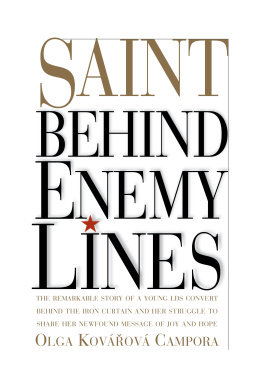
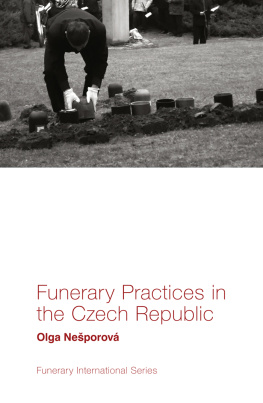
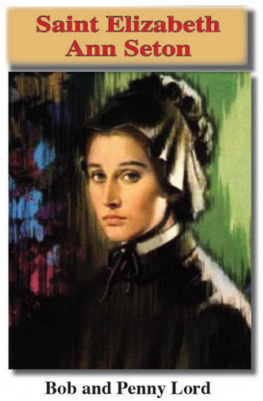
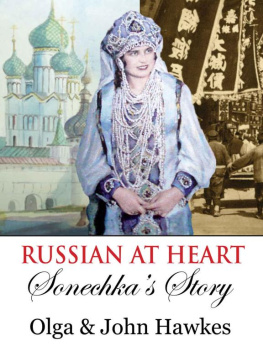
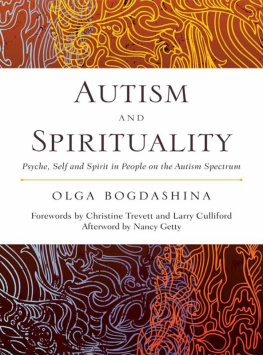
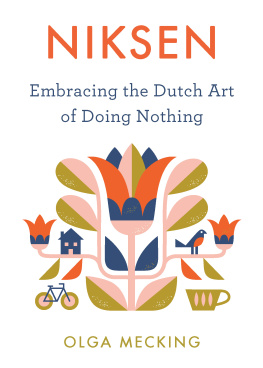
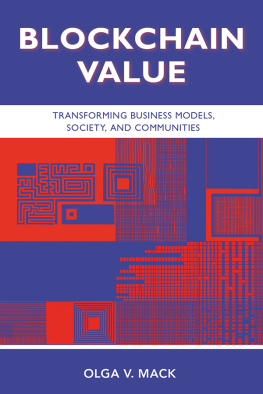
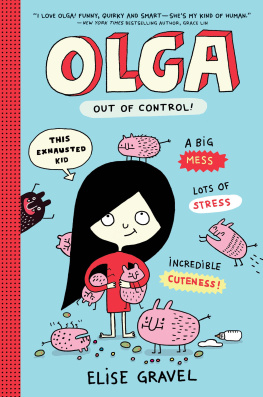
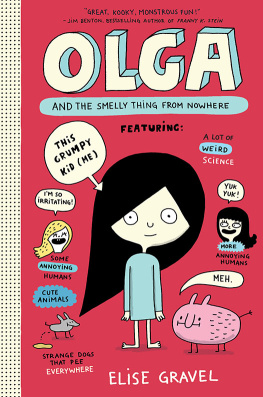
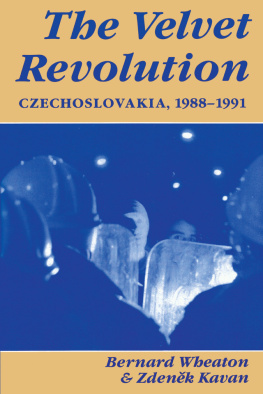
![Sophie Law [Sophie Law] - Olga’s Egg](/uploads/posts/book/141435/thumbs/sophie-law-sophie-law-olga-s-egg.jpg)
